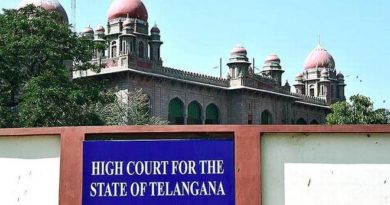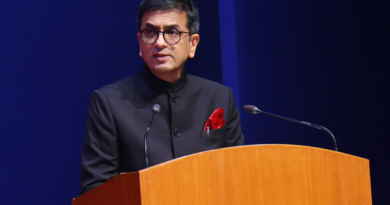PIL Filed In Supreme Court Challenging Utter Pradesh And Uttarakhand Laws On “Love Jihad”, Religious Conversions
(Judicial Quest News Network)
A PIL has been filed in Supreme Court challenging the ordinance promulgated by the UP cabinet on religious conversion and inter-faith marriages stating that it may be misused to falsely implicate people and will lead to chaos and fear.
It is averred that if this ordinance if implemented it will be against the Public Police and this ordinance will harm public at a large and will create a chaotic situation in the society.
The PIL contended that ordinance passed by the two states in the name of “Love Jihad” which curtails the Fundamental Rights of the citizen of India which has been provided in third part of the our Constitution, Petitioner No. 1 is a Practicing Advocate in various Court of Delhi, and New Delhi, and before this Hon’ble Court, Petitioner No. 2 is also a Practicing Advocate in Delhi and Petitioner No. 3 is Law Researcher pursuing PhD. in law, from CMP Degree College, Allahabad University, Allahabad and both the petitioner has the Locus to file the present petition as the petitioners are aggrieved of Ordinance passed by the State Government and knocking at the door of this Hon’ble Court and are praying before this Hon’ble Court that the Law passed by the State of Uttar Pradesh and Uttarakhand, (Uk.) in against the Love Jihad and punishments thereof may be declared Ultra Virus and null and Void, because it disturbs the basic Structure of the Constitution as laid down by the Law.
The Ordinance passed by the State of Uttar Pradesh, U.P) and Uttarakhand, (Uk.) is against the Public Policy and society at large.
this ordinance can become a potent tool in the hands of bad elements of the society to use this ordinance to falsely implicate anyone in this ordinance and there are probabilities of falsely implicate persons who are not involved in any such acts and it will be a grave injustice if this ordinance is passed.
Implementation of these laws will harm “public at a large and will create a chaotic situation in the society states the plea.
The Uttarakhand Freedom of Religion Act, 2018, against the Love Jihad wherein a law has been passed by the Governments and strict Laws has been enacted.
That the ordinance disturbs the basic structure of the Constitution of India, which was held by this Hon’ble time to time in catena of Judgement, in specially in the matter of “Golaknath v State of Punjab is one of the landmark cases in the Indian legal history.
A number of questions were raised in this case. But the most important issue was whether the parliament has the power to amend the fundamental rights enshrined under Part III of the Constitution of India or not. The petitioners contended that the parliament has no power to amend the fundamental rights whereas the respondents contended that the constitution-makers never wanted our constitution as rigid and Non-flexible one. The court held that the parliament cannot amend the fundamental rights. This ruling overturned in Kesavananda Bharati vs Union of India 1973. In this, the court held that the parliament can amend the constitution including fundamental rights but the parliament cannot change the basic structure of the constitution.
The petition filed by Advocate Sanjeev Malhotra and drawn by Advocate Pradeep Kumar Yadav states that the foundation fathers wanted the constitution to be an adaptable document rather than rigid framework for governance.”
They wanted it to be flexible document which can adjust or adapt itself according to the changing situations
The petition further states that center has the right to make laws for the states as per the Article 254 of the Constitution of India, if there is inconsistency between laws made by Parliament and laws made by the Legislatures of State, in that case the Law enacted/passed by the center will prevail. The ordinance also states that no person shall convert or attempt to convert either directly or otherwise any other person from one religion to another by use or practice of misrepresentation, force, undue influence, coercion, allurement or by any fraudulent means or by marriage nor shall any person abet, convince or conspire such conversion. It lay down a detailed procedure to be followed before an individual can convert from one religion to another. Violation of the same entail’s criminal liability on the individual who undergoes conversion and individual who converts the person.




